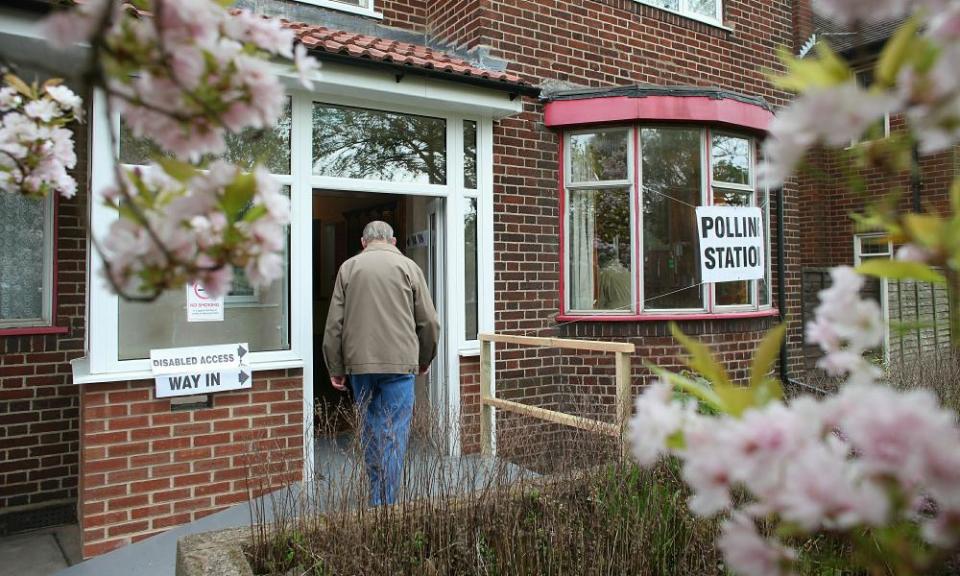Why care homes should take part in the general election | Sara Livadeas

Social care is in a perilous state. Understanding the unique role the sector plays in enhancing the day to day experience of many older and disabled people is too often neglected in favour of bad news stories and funding crisis discussions.
When it comes to care homes, the problems are magnified. Even advocates of social care, such as local authorities, state a clear preference for care at home and try to avoid placing people in residential care. Care homes are seen as expensive and the criteria for independent living imply that you only fully maintain your independence by living at home.
People cannot be deprived of their right to vote and everyone in residential care should be given the chance
But providers and care workers know this is not the case. We know that social care improves residents’ quality of life because it enables them to get on with the business of living. Care homes are communities within communities, and have a vital role to play for people who would otherwise face isolation and declining health.
With a government and media obsessed by Brexit, social care is not going to get much of a look in during this election campaign. We can do something about this.
People living in care homes are lucky enough to have some time on their hands. Older people have been around the block a few times, know their own minds and generally don’t suffer fools. The most obvious thing to do is to bring them face to face with politicians.
It shouldn’t be too difficult to arrange. Politicians want to get elected and are not going to miss a photo opportunity – so invite all your local candidates into care homes and hold hustings. If you can invite the local media at the same time, all the better. Local people will see that care home residents still have opinions, are still part of society and their votes count. And it will force candidates to address the issue of social care, even if it’s just to discuss some of the most basic questions: who pays for care and what’s available locally?
We need to get people in care homes voting, too. In May 2015, when I was working at the Orders of St John Care Trust (OSJCT), we ran a very successful voting campaign, in partnership with the National Development Team for Inclusion and Comic Relief. We created “voting champions” in all our care homes, who could be members of staff, volunteers or even residents. They helped residents to register to vote, organised debates in the care homes, invited candidates to come in to meet residents, and supported people to go out and vote on the day.
The result was a turnout of 36% across all the homes, while one achieved 85% participation. And there were other lasting benefits: staff gained a greater understanding of person-centred working and some homes started using votes to give residents choices about other issues, such as when to serve the main meal of the day.
By creating voting champions we also raised the profile of our residents as citizens and reminded people of their rights. Deciding who to vote for is a very personal decision and a fundamental expression of your individuality – it really brings out who you are, what you value and what you want for your future, and that of your family.
To support a voting campaign in your care home, you first need to make sure residents are registered to vote. People cannot be deprived of their right to vote unless they are in prison, and it is vital that everyone living in residential care is given the chance to exercise their democratic right. We put a link to the registration information page on the OSJCT website to make it easy.
Some residents may wish to have a postal vote, and for others you will need to organise transport to the polling station on election day. Postal votes can be delivered in person at the polling station if people want a day out.
Take the opportunity to make a day of it and have some fun: put up a few posters, organise a debate, stay up for the results with a bottle of wine … And don’t forget your camera! Post the pictures of your polling station visit on your website and social media, and celebrate the act of participation. But most of all take this opportunity to raise the profile of social care in the minds of local and national politicians, and raise the status of care home residents in the media and community around you.
Information about registering to vote can be found here
Sara Livadeas is a consultant at Social Care Works
Would you like to write for the Social Life Blog? Email socialcare@theguardian.com with your ideas.
Join the Social Care Network to read more pieces like this. Follow us on Twitter (@GdnSocialCare) and like us on Facebook to keep up with the latest social care news and views.

 Yahoo News
Yahoo News 